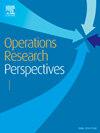用于实时机场登机口分配的深度强化学习方法
IF 3.7
4区 管理学
Q2 OPERATIONS RESEARCH & MANAGEMENT SCIENCE
引用次数: 0
摘要
将飞机分配到登机口是机场专业人员面临的最重要的日常决策问题之一。为解决这一问题,许多研究人员付出了巨大的努力,解决了这一问题的许多不同变体。然而,大多数现有的登机口分配研究都只从静态角度出发,没有考虑到未来可能出现的干扰和不确定性。我们将闸门分配视为一个动态决策过程,从而弥补了这一不足。本文介绍了实时登机口分配问题解决方案(REGAPS)算法,这是一种创新方法,通过集成深度强化学习(DRL),善于解决预先分配问题,并在机场实时动态优化登机口分配。这项研究首次将 DRL 应用于真实机场数据以及包含大量航班和登机口的配置。该方法将量身定制的马尔可夫决策过程(MDP)公式与异步优势行为批判者(A3C)架构相结合。该方法考虑了航班时刻表、登机口可用性和乘客步行时间等多种因素。一项实证案例研究表明,在减少乘客步行时间和停机坪登机口分配方面,REGAPS 优于两种经典的深度 Q-learning 算法和一种传统的遗传算法。最后,补充实验强调了 REGAPS 在国际和国内航班各种登机口分配规则下的适应性。实验结果表明,REGAPS 不仅优于 COVID 限制,而且在其他政策下也能产生可观的效益。本文章由计算机程序翻译,如有差异,请以英文原文为准。
Deep reinforcement learning approach for real-time airport gate assignment
Assigning aircraft to gates is one of the most important daily decision problems that airport professionals face. The solution to this problem has raised a significant effort, with many researchers tackling many different variants of this problem. However, most existing studies on gate assignment contain only a static perspective without considering possible future disruptions and uncertainties. We bridge this gap by looking at gate assignments as a dynamic decision-making process. This paper presents the Real-time Gate Assignment Problem Solution (REGAPS) algorithm, an innovative method adept at resolving pre-assignment issues and dynamically optimizing gate assignments in real-time at airports through the integration of Deep Reinforcement Learning (DRL). This work represents the first time that DRL is used with real airport data and a configuration containing a large number of flights and gates. The methodology combines a tailored Markov Decision Process (MDP) formulation with the Asynchronous Advantage Actor–Critic (A3C) architecture. Multiple factors, such as flight schedules, gate availability, and passenger walking time, are considered. An empirical case study demonstrates that the REGAPS outperforms two classic deep Q-learning algorithms and a traditional Genetic Algorithm in terms of reducing passenger walking time and apron gate assignment. Finally, supplementary experiments highlight REGAPS’s adaptability under various gate assignment rules for international and domestic flights. The finding demonstrates that not only did REGAPS outperform COVID restrictions, but it can also produce considerable benefits under other policies.
求助全文
通过发布文献求助,成功后即可免费获取论文全文。
去求助
来源期刊

Operations Research Perspectives
Mathematics-Statistics and Probability
CiteScore
6.40
自引率
0.00%
发文量
36
审稿时长
27 days
 求助内容:
求助内容: 应助结果提醒方式:
应助结果提醒方式:


